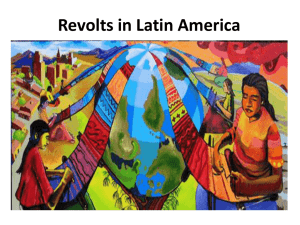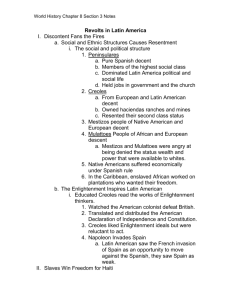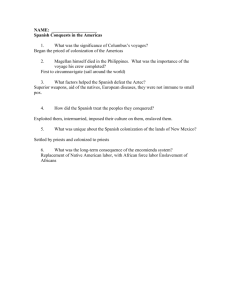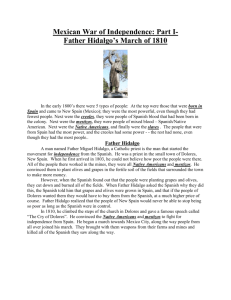Mexican Independence 2
advertisement
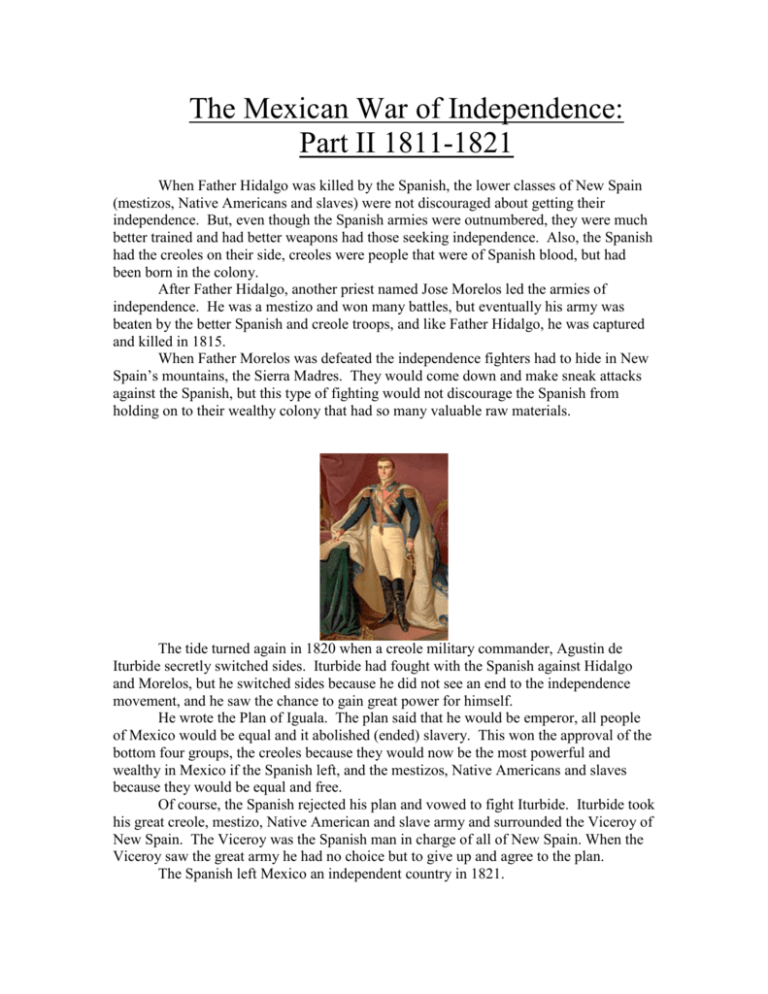
The Mexican War of Independence: Part II 1811-1821 When Father Hidalgo was killed by the Spanish, the lower classes of New Spain (mestizos, Native Americans and slaves) were not discouraged about getting their independence. But, even though the Spanish armies were outnumbered, they were much better trained and had better weapons had those seeking independence. Also, the Spanish had the creoles on their side, creoles were people that were of Spanish blood, but had been born in the colony. After Father Hidalgo, another priest named Jose Morelos led the armies of independence. He was a mestizo and won many battles, but eventually his army was beaten by the better Spanish and creole troops, and like Father Hidalgo, he was captured and killed in 1815. When Father Morelos was defeated the independence fighters had to hide in New Spain’s mountains, the Sierra Madres. They would come down and make sneak attacks against the Spanish, but this type of fighting would not discourage the Spanish from holding on to their wealthy colony that had so many valuable raw materials. The tide turned again in 1820 when a creole military commander, Agustin de Iturbide secretly switched sides. Iturbide had fought with the Spanish against Hidalgo and Morelos, but he switched sides because he did not see an end to the independence movement, and he saw the chance to gain great power for himself. He wrote the Plan of Iguala. The plan said that he would be emperor, all people of Mexico would be equal and it abolished (ended) slavery. This won the approval of the bottom four groups, the creoles because they would now be the most powerful and wealthy in Mexico if the Spanish left, and the mestizos, Native Americans and slaves because they would be equal and free. Of course, the Spanish rejected his plan and vowed to fight Iturbide. Iturbide took his great creole, mestizo, Native American and slave army and surrounded the Viceroy of New Spain. The Viceroy was the Spanish man in charge of all of New Spain. When the Viceroy saw the great army he had no choice but to give up and agree to the plan. The Spanish left Mexico an independent country in 1821. Discussion Questions: 1.) Do you think that Iturbide was a man who truly believed in freedom for all, or a man that just wanted power? Explain. ________________________________________________________________________ ________________________________________________________________________ ________________________________________________________________________ ________________________________________________________________________ 2.) Compare and contrast the Plan of Iguala with the Declaration of Independence. ________________________________________________________________________ ________________________________________________________________________ ________________________________________________________________________ ________________________________________________________________________ ________________________________________________________________________ ________________________________________________________________________ ________________________________________________________________________ ________________________________________________________________________

